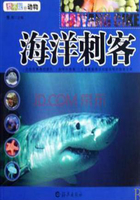For it needs defence. The whole modern world is at war with reason; and the tower already reels.
The sages, it is often said, can see no answer to the riddle of religion. But the trouble with our sages is not that they cannot see the answer; it is that they cannot even see the riddle.
They are like children so stupid as to notice nothing paradoxical in the playful assertion that a door is not a door. The modern latitudinarians speak, for instance, about authority in religion not only as if there were no reason in it, but as if there had never been any reason for it. Apart from seeing its philosophical basis, they cannot even see its historical cause. Religious authority has often, doubtless, been oppressive or unreasonable; just as every legal system (and especially our present one) has been callous and full of a cruel apathy. It is rational to attack the police; nay, it is glorious. But the modern critics of religious authority are like men who should attack the police without ever having heard of burglars. For there is a great and possible peril to the human mind: a peril as practical as burglary. Against it religious authority was reared, rightly or wrongly, as a barrier.
And against it something certainly must be reared as a barrier, if our race is to avoid ruin.
That peril is that the human intellect is free to destroy itself.
Just as one generation could prevent the very existence of the next generation, by all entering a monastery or jumping into the sea, so one set of thinkers can in some degree prevent further thinking by teaching the next generation that there is no validity in any human thought.
It is idle to talk always of the alternative of reason and faith.
Reason is itself a matter of faith. It is an act of faith to assert that our thoughts have any relation to reality at all. If you are merely a sceptic, you must sooner or later ask yourself the question, "Why should ANYTHING go right; even observation and deduction?
Why should not good logic be as misleading as bad logic?
They are both movements in the brain of a bewildered ape?"
The young sceptic says, "I have a right to think for myself."
But the old sceptic, the complete sceptic, says, "I have no right to think for myself. I have no right to think at all."
There is a thought that stops thought. That is the only thought that ought to be stopped. That is the ultimate evil against which all religious authority was aimed. It only appears at the end of decadent ages like our own: and already Mr. H.G.Wells has raised its ruinous banner; he has written a delicate piece of scepticism called "Doubts of the Instrument." In this he questions the brain itself, and endeavours to remove all reality from all his own assertions, past, present, and to come. But it was against this remote ruin that all the military systems in religion were originally ranked and ruled. The creeds and the crusades, the hierarchies and the horrible persecutions were not organized, as is ignorantly said, for the suppression of reason. They were organized for the difficult defence of reason. Man, by a blind instinct, knew that if once things were wildly questioned, reason could be questioned first.
The authority of priests to absolve, the authority of popes to define the authority, even of inquisitors to terrify: these were all only dark defences erected round one central authority, more undemonstrable, more supernatural than all--the authority of a man to think.
We know now that this is so; we have no excuse for not knowing it.
For we can hear scepticism crashing through the old ring of authorities, and at the same moment we can see reason swaying upon her throne.
In so far as religion is gone, reason is going. For they are both of the same primary and authoritative kind. They are both methods of proof which cannot themselves be proved. And in the act of destroying the idea of Divine authority we have largely destroyed the idea of that human authority by which we do a long-division sum.
With a long and sustained tug we have attempted to pull the mitre off pontifical man; and his head has come off with it.
Lest this should be called loose assertion, it is perhaps desirable, though dull, to run rapidly through the chief modern fashions of thought which have this effect of stopping thought itself.
Materialism and the view of everything as a personal illusion have some such effect; for if the mind is mechanical, thought cannot be very exciting, and if the cosmos is unreal, there is nothing to think about. But in these cases the effect is indirect and doubtful. In some cases it is direct and clear; notably in the case of what is generally called evolution.
Evolution is a good example of that modern intelligence which, if it destroys anything, destroys itself. Evolution is either an innocent scientific description of how certain earthly things came about; or, if it is anything more than this, it is an attack upon thought itself. If evolution destroys anything, it does not destroy religion but rationalism. If evolution simply means that a positive thing called an ape turned very slowly into a positive thing called a man, then it is stingless for the most orthodox; for a personal God might just as well do things slowly as quickly, especially if, like the Christian God, he were outside time.
But if it means anything more, it means that there is no such thing as an ape to change, and no such thing as a man for him to change into. It means that there is no such thing as a thing.
At best, there is only one thing, and that is a flux of everything and anything. This is an attack not upon the faith, but upon the mind; you cannot think if there are no things to think about.
You cannot think if you are not separate from the subject of thought.
Descartes said, "I think; therefore I am." The philosophic evolutionist reverses and negatives the epigram. He says, "I am not; therefore I cannot think."















